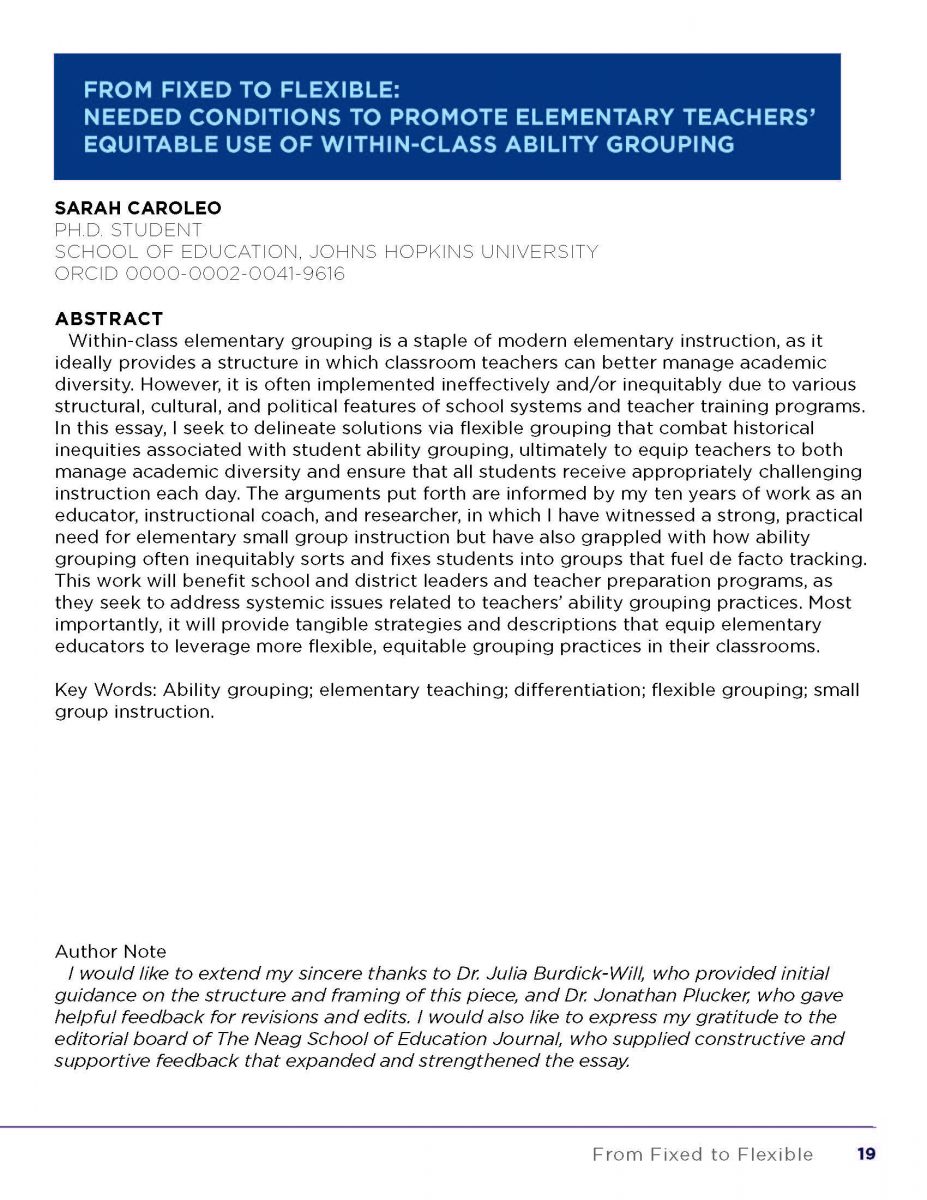Authors
Sarah Caroleo, Ph.D. student, School Of Education, Johns Hopkins University
ORCID 0000-0002-0041-9616
Abstract
Within-class elementary grouping is a staple of modern elementary instruction, as it ideally provides a structure in which classroom teachers can better manage academic diversity. However, it is often implemented ineffectively and/or inequitably due to various structural, cultural, and political features of school systems and teacher training programs. In this essay, I seek to delineate solutions via flexible grouping that combat historical inequities associated with student ability grouping, ultimately to equip teachers to both manage academic diversity and ensure that all students receive appropriately challenging instruction each day. The arguments put forth are informed by my ten years of work as an educator, instructional coach, and researcher, in which I have witnessed a strong, practical need for elementary small group instruction but have also grappled with how ability grouping often inequitably sorts and fixes students into groups that fuel de facto tracking. This work will benefit school and district leaders and teacher preparation programs, as they seek to address systemic issues related to teachers’ ability grouping practices. Most importantly, it will provide tangible strategies and descriptions that equip elementary educators to leverage more flexible, equitable grouping practices in their classrooms.
Keywords: Ability grouping; elementary teaching; differentiation; flexible grouping; small group instruction
DOI: https://doi.org/10.59198/1184sdeodm
Author Note
I would like to extend my sincere thanks to Dr. Julia Burdick-Will, who provided initial guidance on the structure and framing of this piece, and Dr. Jonathan Plucker, who gave helpful feedback for revisions and edits. I would also like to express my gratitude to the editorial board of The Neag School of Education Journal, who supplied constructive and supportive feedback that expanded and strengthened the essay.

